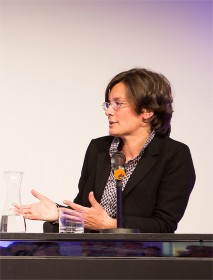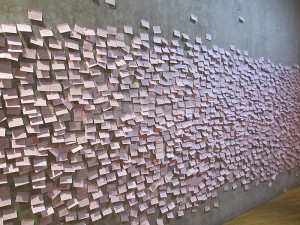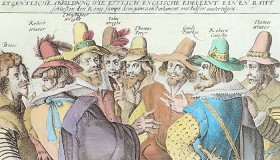
Dr. Karen Körber, the first scholar ever to benefit from the Fellowship Program of the Jewish Museum Berlin © JMB, Photo: Ernst Fesseler
The Jewish community in Germany has undergone a profound change in recent years—and the protagonists behind that change are the primary focus of research undertaken by Dr. Karen Körber, the first scholar of the Fellowship Program of the Jewish Museum Berlin. For the last two years Dr. Körber has been investigating “Daily Realities: Jewish Life in Germany Today” and she recently spoke to me about her findings.
Karen, the Fellowship Program of the JMB supports research into Jewish history and culture as well as into broader-ranging aspects of migration and diversity in Germany. You are the first person ever to complete the two-year Fellowship Program—a pioneer, so to speak—and I’d be interested to hear about that experience.
I found myself in a very open situation and was able to do much as I liked. All fellowship programs are fundamentally privileged set-ups but this particular one has the advantage of being attached to a well-endowed institution of international renown. → continue reading

A wall full of questions at the exhibition “The whole truth” © Jewish Museum Berlin, photo: Thomas Valentin Harb
Just over a year ago the Jewish Museum’s special exhibition entitled “The whole truth… everything you always wanted to know about Jews” ended. The only remnants – aside from the animated discussions and empty display cases – were thousands of pink post-it notes, which we kept and read through painstakingly. In the upcoming months we want to respond to some of the questions, comments, and impressions that visitors left behind. Thus to the question above.
Orthodox women do not show their hair in public after their wedding. → continue reading
The 9th of November was not a day of national commemoration in England, where I grew up. We had to
“Remember, remember the 5th of November, gunpowder, treason and plot…”

The Gunpowder Plot Conspirators, unknown engraver, ca. 1605-1606
This was the date on which Guy Fawkes, a Catholic renegade, dramatically failed to blow up London’s House of Lords. This cultural memory has been faithfully preserved for over 400 years. However, the 9th of November never went unremarked in our household. It was always referred to in German with a shudder: “Kristallnacht,” a name and concept for which no English equivalent exists.
Moving to Germany in 2001, I was surprised to discover that the 9th of November was indeed a day when the organized pogroms against Jews in Germany in 1938 were discussed in the media and commemorative events were held. → continue reading


